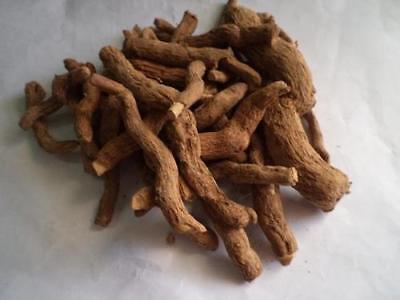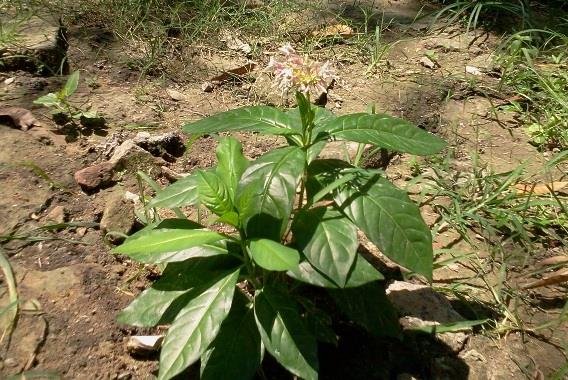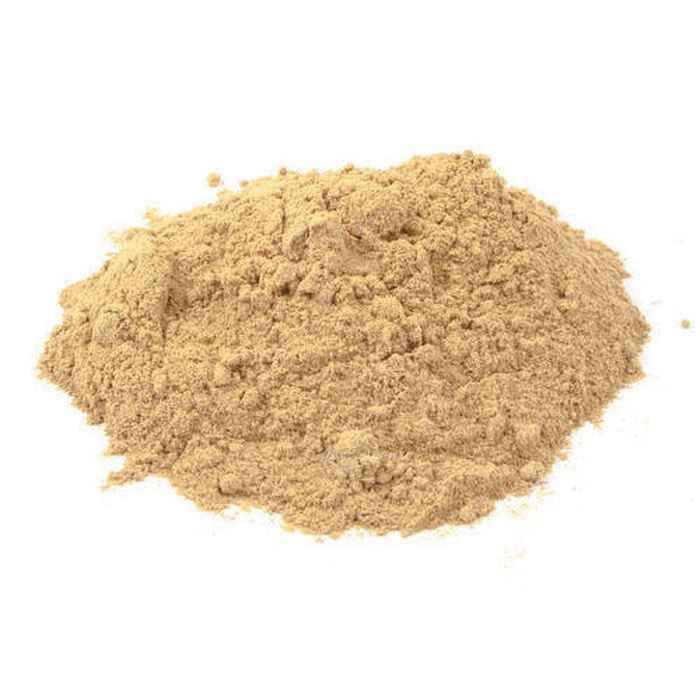At Shakomato Farm Organics, we value the healing power of nature. This article explains what Sarpagandha is, how it helps your body, and when to use it with care.
When nature gives us plants with healing powers, we feel thankful. Sarpagandha, also called Indian Snakeroot, has been used for thousands of years to help people feel better.
This small plant with snake-like roots holds many secrets that can help with blood pressure, sleep problems, and feeling worried. At Shakomato Farm Organics, we believe in sharing how plants can make our lives healthier in gentle ways.
Ayurvedic medicine has trusted Sarpagandha for over 3,000 years. People in India and nearby countries have passed down knowledge about this special plant from parents to children for many, many years.
Today, we want to share this old wisdom with you, so you can learn about what Sarpagandha is used for and how it might help you feel better.
What is Sarpagandha?

Sarpagandha, known by its scientific name Rauvolfia serpentina, is a small plant that grows in the lower hills of the Himalayan mountains. Its name comes from Sanskrit, where “Sarpa” means snake and “Gandhi” means smell.
The roots of this plant look twisted like snakes, which is how it got its name.
Botanical Description Of Sarpagandha
The Sarpagandha plant is a small evergreen shrub that grows up to 60-90 cm tall. It has bright green leaves that grow in groups of three. The flowers are small and can be white, pink, or sometimes light purple.
The most important part of the Sarpagandha plant is its roots. These roots are long (about 18-20 inches), twisted, and have a pale brown outer layer. When the plant makes fruit, they start green but turn purple-black when they are ripe.
Sarpagandha plants grow naturally in India, Pakistan, Sri Lanka, Burma, and Thailand. In India, you can find them in areas like Punjab, Nepal, and parts of the Himalayan foothills.
Traditional Importance in Ayurveda
In Ayurvedic medicine, Sarpagandha has been very important for thousands of years. Old Indian books from as far back as 1000 BCE mention this plant and its healing powers.
People called it “Pagla-ka-dawa,” which means “medicine for the mad,” because it helped calm people with mental health issues. It was one of the first plants used to help people with serious mental disorders.
The roots of the plant hold most of the helpful chemicals. Ayurvedic doctors used Sarpagandha for many health problems, from snake bites to fever to mental stress. They knew this plant had special powers to calm the mind and body.
What is Sarpagandha Used For?

Sarpagandha is used for many health problems. Its most common uses include:
- Lowering High Blood Pressure – Sarpagandha helps relax blood vessels, which makes blood pressure go down. It’s been used for this purpose since the 1940s.
- Calming Anxiety – The plant has natural calming effects that help quiet a worried mind.
- Helping With Sleep Problems – Sarpagandha can make it easier to fall asleep and stay asleep.
- Treating Mental Disorders – It helps with serious mental health issues like schizophrenia.
- Easing Stomach Problems – Sarpagandha helps with constipation and other digestive issues.
- Treating Fever – It has cooling properties that help bring down high fever.
- Helping With Snake Bites – Traditionally used to help neutralize snake venom.
The roots of the plant contain over 50 different alkaloids (special plant chemicals). The most important one is called reserpine, which is what helps lower blood pressure.
Benefits Of Sarpagandha

Sarpagandha offers many health benefits thanks to its powerful natural compounds.
Let’s look at how it helps with different health concerns.
What Are The Benefits Of Sarpagandha For Anxiety?
Sarpagandha has natural calming effects on the nervous system. When you feel anxious or worried, your nerves can get over-excited. Sarpagandha helps quiet this over-activity.
The root powder of Sarpagandha works on brain chemicals to create a feeling of calm. People who feel nervous or have symptoms of anxiety may find that Sarpagandha helps them feel more peaceful without making them sleepy during the day.
Many people prefer this herbal remedy for anxiety because it comes from nature, unlike some stronger medicines that might have more side effects.
What Are The Benefits Of Sarpagandha For Hypertension (High Blood Pressure)?
Controlling high blood pressure is the most famous use of Sarpagandha.
The plant contains reserpine, which helps lower blood pressure by:
- Slowing down heart rate to a normal range
- Relaxing blood vessels so blood flows more easily
- Improving blood circulation throughout the body
Research shows that Sarpagandha can reduce systolic blood pressure (the top number) by about 8 mmHg compared to placebo. This makes it nearly as effective as some modern blood pressure medicines.
For people with essential hypertension (high blood pressure without a known cause), Sarpagandha has been used successfully for decades. In fact, an Indian doctor named Rustom Jal Vakil made Sarpagandha famous in 1943 when he wrote about how well it worked for high blood pressure.
What Are The Benefits Of Sarpagandha For Insomnia?
Having trouble sleeping can make you feel tired and unhappy. Sarpagandha works as a natural sleep generator by calming the mind and body.
The sedative properties of Sarpagandha help:
- Make it easier to fall asleep
- Improve sleep quality
- Helps you stay asleep through the night
- Wake up feeling more rested
Many people find that taking Sarpagandha with warm water before bed helps them get better sleep without the morning grogginess that can come with some sleep medications.
What Are The Benefits Of Sarpagandha For Constipation?
Sarpagandha has mild laxative properties that help with constipation. The root of the plant helps:
- Stimulating bowel movements
- Ease digestive discomfort
- Promote healthier digestion
The plant creates a gentle warming effect in the digestive system, which helps food move through more easily. This makes it useful for people who struggle with occasional constipation.
What Are The Benefits Of Sarpagandha For Fever?
For centuries, people have used Sarpagandha to treat high fever. It works as a natural fever reducer by:
- Cooling the body
- Reducing inflammation
- Helping the body fight infection
The root extract of this herb can be mixed with rose water to create a cooling paste that helps bring down fever when applied to the forehead.
How Effective Is Sarpagandha?
Sarpagandha has shown positive effects in both traditional use and modern research.
Studies have found that:
- It works similarly to some prescription medications for high blood pressure
- Its effects on anxiety and sleep are reliable and consistent
- The benefits for mental disorders have been documented since the 1940s
The effectiveness of Sarpagandha comes from its rich mix of natural compounds. The plant contains over 50 different alkaloids, with reserpine being the most studied. These natural chemicals work together to create healing effects on the body.
Many healthcare providers now recognize the value of this traditional herb, especially for helping with blood pressure when combined with healthy lifestyle changes.
Precautions When Using Sarpagandha

While Sarpagandha offers many benefits, it must be used carefully. This potent herb requires respect and caution. Always follow these precautions:
- Always use Sarpagandha under medical supervision, especially if you take other medications
- Start with a lower dose and increase slowly to see how your body responds
- Monitor your blood pressure regularly if using for hypertension
- Do not suddenly stop taking Sarpagandha if you’ve been using it regularly
- Keep track of any changes in mood, as it may affect mental health
- Tell your healthcare provider about all herbs and medicines you take
Sarpagandha may interact with several medications, including those for:
- Depression
- Heart conditions
- Blood pressure
- Parkinson’s disease
- Sleep aids
The herb can also worsen peptic ulcer disease, so people with stomach ulcers should avoid it.
Recommended Dosage Of Sarpagandha

The right amount of Sarpagandha depends on what you’re using it for and your overall health. Always talk to a qualified Ayurvedic practitioner or healthcare provider before starting any herbal treatment.
General dosage guidelines for Sarpagandha include:
- For Insomnia: 250 mg – 1 gram in divided doses per day
- For High Blood Pressure: 250 mg – 2 grams in divided doses per day
- For Anxiety: Start with 250 mg twice daily
- For Fever: 500 mg mixed with warm water, twice daily
Sarpagandha formulations come in different forms:
- Root powder
- Sarpagandha vati (tablets)
- Sarpagandha ghan vati (concentrated tablets)
- Liquid extracts
- Capsules
The time it takes to see results varies:
- For Sleep Problems: Effects may be noticed within 1-2 days
- For High Blood Pressure: It may take 2-3 weeks to see full benefits
- For Anxiety: Most people notice improvement within 7-10 days
Who Should Avoid Using Sarpagandha?
Not everyone should use Sarpagandha. These groups should avoid this herb or use it only with special care from a healthcare provider:
- Pregnant Or Breastfeeding Women – The herb might affect the baby’s development or pass through breast milk
- Children Under 12 Years Old – Not enough research exists on safety for young children
- People With Depression – Sarpagandha may worsen depression symptoms
- Those With Low Blood Pressure – The herb can lower blood pressure further
- People With Peptic Ulcer Disease – May irritate stomach lining
- Those With kidney Or Liver Problems – These may affect how the body processes the herb
- People Scheduled For Surgery – Should stop using at least 2 weeks before any operation
- Those Taking Medications For Mental Health Issues – May interact with these drugs
If you have any chronic health conditions, always talk to your healthcare provider before starting Sarpagandha or any herbal products.
Side Effects Of Sarpagandha
Like all potent medicines, Sarpagandha can cause unwanted effects in some people.
Knowing these possible side effects helps you use it more safely.
Short-Term Side Effects
When first taking Sarpagandha, you might notice:
- Nasal congestion – A stuffy or runny nose
- Dizziness or lightheadedness, especially when standing up quickly
- Slower heart rate – Your pulse may feel slower than normal
- Drowsiness or feeling tired during the day
- Upset stomach, including nausea or diarrhea
- Headache
- Loss of appetite
- Dry mouth
Most of these short-term side effects are mild and often go away as your body gets used to the herb. If they continue or become bothersome, talk to your healthcare provider.
Long-Term Risks
Using Sarpagandha for a long time may lead to:
- Depression – The herb can affect brain chemicals related to mood
- Persistent Low Blood Pressure – May cause weakness and fatigue
- Sexual Problems – Some people report decreased interest or function
- Weight Gain – Usually mild but can happen with long-term use
- Changes in Blood Sugar Levels – May affect people with diabetes
- Lower Energy Levels – Some people feel less motivated or energetic
If you take Sarpagandha for more than a few weeks, have regular check-ups with your healthcare provider to monitor for these potential side effects.
FAQ’s:
Can Sarpagandha Cause Depression?
Yes, Sarpagandha can cause depression in some people, especially with long-term use. This happens because the herb affects certain brain chemicals that control mood. If you start feeling sad, hopeless or have less interest in things you usually enjoy while taking Sarpagandha, talk to your healthcare provider right away.
People who already have depression or a history of depression should be very careful with Sarpagandha and probably avoid it unless closely monitored by a doctor who knows about both mental health issues and herbal medicines.
Is Sarpagandha Safe For Everyone To Use?
No, Sarpagandha is not safe for everyone. While it offers many health benefits, it’s a potent herb with strong effects on the body.
People who should avoid Sarpagandha include pregnant or breastfeeding women, children, people with depression, those with low blood pressure, and individuals with peptic ulcer disease.
Always talk to a qualified Ayurvedic practitioner or healthcare provider before using Sarpagandha, especially if you take other medications or have existing health conditions.
Is Sarpagandha Effective For High Blood Pressure?
Yes, research shows Sarpagandha is effective for high blood pressure. It contains reserpine, a compound that helps lower blood pressure by relaxing blood vessels and slowing heart rate.
Studies have found that Sarpagandha can reduce systolic blood pressure by about 8 mmHg compared to placebo, making it comparable to some prescription medications. In fact, after an Indian physician highlighted its benefits in 1943, it was used to treat over a million people with high blood pressure in the 1940s.
However, modern blood pressure medications may be more precise in their effects. Always work with your healthcare provider to find the best treatment for your specific situation.
Can Sarpagandha Improve Sleep Quality?
Yes, Sarpagandha can improve sleep quality for many people. Its natural sedative properties help calm the nervous system, making it easier to fall asleep and stay asleep throughout the night.
The herb helps with sleep by:
- Calming an overactive mind
- Relaxing the body
- Regulating sleep cycles
- Reducing anxiety that might keep you awake
For best results, take Sarpagandha about 30-60 minutes before bedtime with warm water or milk. Start with a low dose and increase gradually if needed, always under the guidance of a healthcare provider.
Can Pregnant Or Breastfeeding Women Use Sarpagandha?
No, pregnant or breastfeeding women should not use Sarpagandha. The herb contains powerful active compounds that might affect the baby’s development or pass through breast milk to the infant.
Some of the compounds in Sarpagandha may affect blood flow to the uterus or stimulate uterine contractions, which could be dangerous during pregnancy. If you’re pregnant or breastfeeding and looking for natural remedies for blood pressure, anxiety, or sleep problems, talk to your healthcare provider about safer alternatives.
How Does Sarpagandha Aid in Hypertension Management?
Sarpagandha helps manage hypertension (high blood pressure) in several ways:
- It contains reserpine, which depletes certain chemicals in nerve endings, causing blood vessels to relax and widen
- It slows heart rate to a normal range, reducing the force of blood against artery walls
- It improves blood circulation by reducing resistance in blood vessels
- It has a mild calming effect that can lower stress-related blood pressure spikes
For best results in managing high blood pressure with Sarpagandha:
- Take it consistently as directed
- Combine it with heart-healthy lifestyle changes
- Monitor your blood pressure regularly
- Have regular check-ups with your healthcare provider
- Don’t stop other prescribed blood pressure medications without medical advice
Conclusion
Sarpagandha, also called Indian Snakeroot, is a powerful medicinal plant with many health benefits. Its roots have been used for thousands of years to help with high blood pressure, anxiety, sleep problems, and more.
At Shakomato Farm Organics, we believe in sharing the wisdom of Ayurvedic medicine while using Sarpagandha safely and responsibly. This potent herb can improve heart health, calm the nervous system, and support better sleep when used correctly.
If you want to try Sarpagandha for its health benefits, remember to talk to a healthcare provider first. Start with a small dose and watch for any side effects like dizziness or low blood pressure. Some people, like pregnant women or those with peptic ulcer disease, should avoid this herb.
Always follow the recommended dosage and use it under medical supervision to stay safe. Sarpagandha is a gift from nature that can support your cardiovascular health and mental well-being when used with care.



